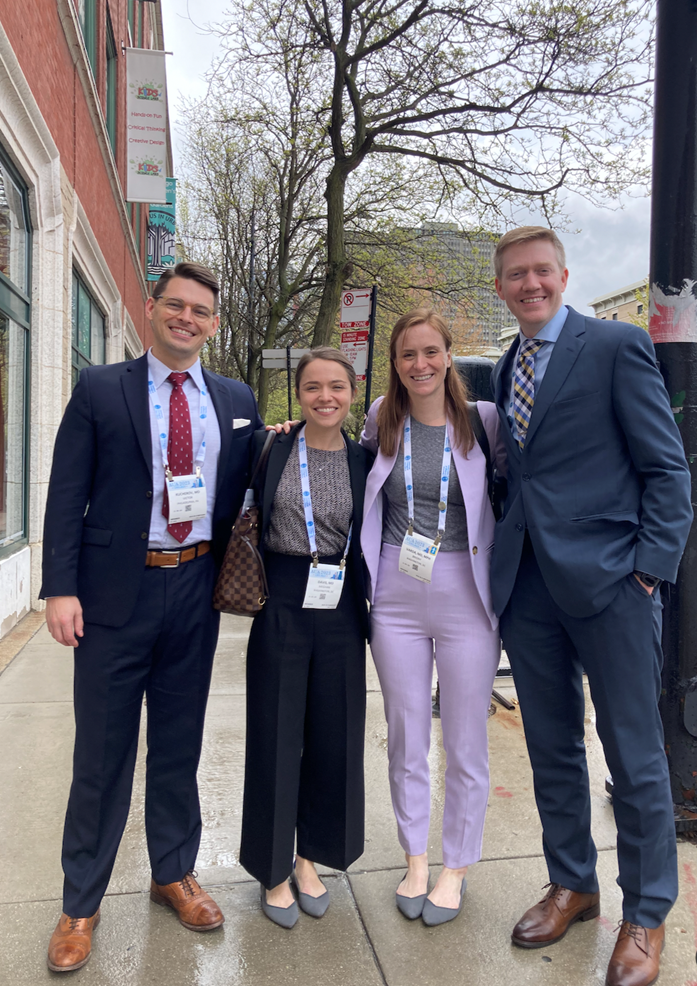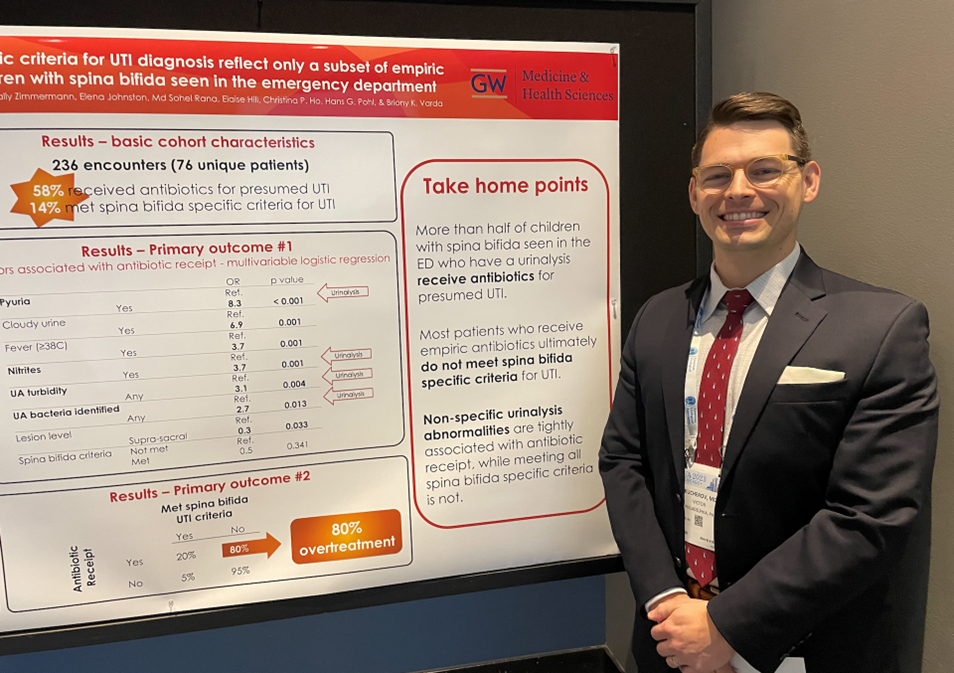Research
The fellow research experience is conducted during the first year of fellowship. The mission of the research year is to help the fellow develop a research skillset that may be used in future practice.
This is achieved through:
- Leading their own research project(s) from idea through to manuscript submission
- Enhancing their skillset through coursework aimed at research design and analysis
- Participating in a research ColLABorative with fellows from other surgical subspecialties
- Presenting their research in various forms (e.g. abstract talk, 10-minute work in progress, and summative presentations)
We facilitate this by providing direction surrounding coursework, research coordinators and biostatistician support, ColLABorative research meetings with real-time feedback and discussion of projects, essential research applications, quarterly mentorship meetings and a summer bootcamp aimed at developing research skills and providing a research “tool kit”.
Briony Varda, MD, MPH, director of research for the division, oversees the fellows research efforts and provides formal mentorship during their research year. She works with Program Director, Daniel Casella, MD, and Assistant Program Director, Christina Ho, MD, to try to optimize the overall fellowship research experience.

Research Meetings
Explore the various research meetings fellows will attend through the academic year.
At the beginning of the academic year, faculty and guests will give didactics focused on executing the various components of the research process, and both examples and templates will be provided. Topics vary depending on a needs assessment at the outset of the summer, but may include:
- Methods in health services research
- Data sources
- Research organization
- Performing a lit review & organizing references
- Writing a research objective
- Writing a research proposal
- Basic biostatistics & working with a statistician
- Creating highly readable data tables and figures
- Cleaning and organizing data
- Understanding and evaluating results
- Writing a research abstract
- Writing a manuscript: introduction
- Writing a manuscript: methods
- Writing a manuscript: results
- Writing a manuscript: conclusions
- Creating a research presentation








